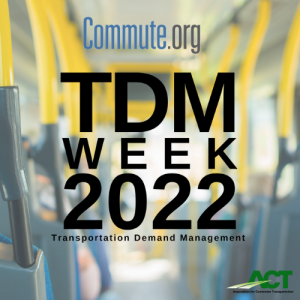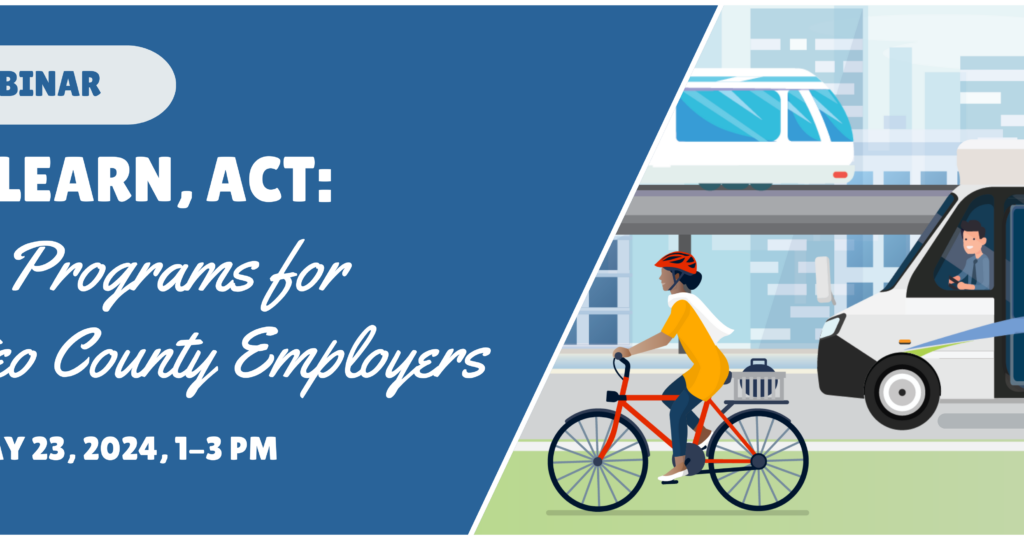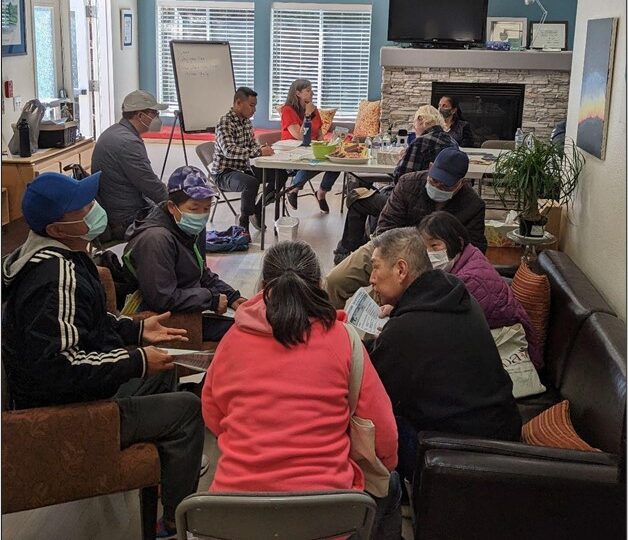Your Commute Counts: Gear up for TDM Week 2022

#TDMweek #YourCommuteCounts
Prior to the pandemic, most San Mateo County commuters drove alone to work. This contributed to congested roadways, greenhouse gas (GHG) emissions, and increased travel times, costs, and stress. As many commuters are now returning to their workplaces, we all need to rethink our commute and how we get around.
Transportation Demand Management (TDM) is one way to shift how people commute. Traditionally, TDM is defined as a set of strategies put in place to create a behavioral change in transportation habits. More simply, TDM aims to decrease drive-alone trips whenever possible. A small reduction in the number of drive-alone trips on San Mateo County’s roads can lead to significant reductions in GHG and congestion, resulting in cleaner air, improved public health, and costs savings. With more commuting options and less traffic, people will also have better and more reliable access to jobs.
Commute.org’s mission is to reduce the number of vehicle miles traveled (VMT) by commuters to decrease congestion, improve the environment, and enhance quality of life in San Mateo County. We envision a region where all residents and employees have access to equitable, sustainable, affordable, and safe transportation options.
In recognition of the importance of TDM, Commute.org’s Board of Directors, representing nineteen cities/towns and the County of San Mateo, proclaimed September 19 – 23 to be “TDM Week 2022” in San Mateo County. Commute.org joins the national movement created by the Association of Commuter Transportation to bring awareness to Transportation Demand Management (TDM) in our communities during this week.
How can you participate? One way is to request free transit tickets via Commute.org’s Try Transit program. Commuters or college students traveling to or from San Mateo County are eligible for free tickets to try SamTrans, Caltrain, or San Francisco Bay Ferry if they currently drive alone.
Another way is to create a free account on Commute.org’s STAR platform. With a STAR account, commuters can find carpool partners, receive incentives for non-drive alone commutes, and qualify for the countywide Guaranteed Ride Home program.
To expand the number of Bay Area commuters who participate in TDM programs, Commute.org recently collaborated with five regional TDM agencies to create an integrated ride matching and rewards tool through the STAR platform that connects commuters with programs throughout the region. Engaging with commuters from other counties is critical since nearly 60 percent of the San Mateo County workforce travel here from outside the county.
While we are excited to promote TDM Week in San Mateo County, it is important to recognize that long-term success requires ongoing commitment. That is why Commute.org partners with local businesses, non-profits, community-based organizations, and public transit agencies to promote TDM and support the use of sustainable transportation modes.
To learn more about TDM in San Mateo County as well as what is happening in the Bay Area for TDM Week, please visit the agency’s website (Commute.org). Together, we can make a change in the San Mateo County commute.
# # #
About Commute.org
Commute.org is a joint powers agency (JPA) serving San Mateo County. The JPA is comprised of 19 cities and towns as well as the County of San Mateo.
Commute.org’s mission is to reduce the number of vehicle miles traveled (VMT) by commuters to decrease congestion, improve the environment, and enhance quality of life. We do this by encouraging and supporting the use of sustainable alternatives to driving alone. We envision a region where all residents and employees have access to equitable, sustainable, affordable, and safe transportation options and use them as their primary modes when commuting on the Peninsula.
Commute.org receives funding from the City/County Association of Governments of San Mateo County (C/CAG), the San Mateo County Transportation Authority, and the Bay Area Air Quality Management District. The Commute.org shuttle program also receives funding from employers, property managers, and transit agencies. For more information, please visit www.commute.org.


